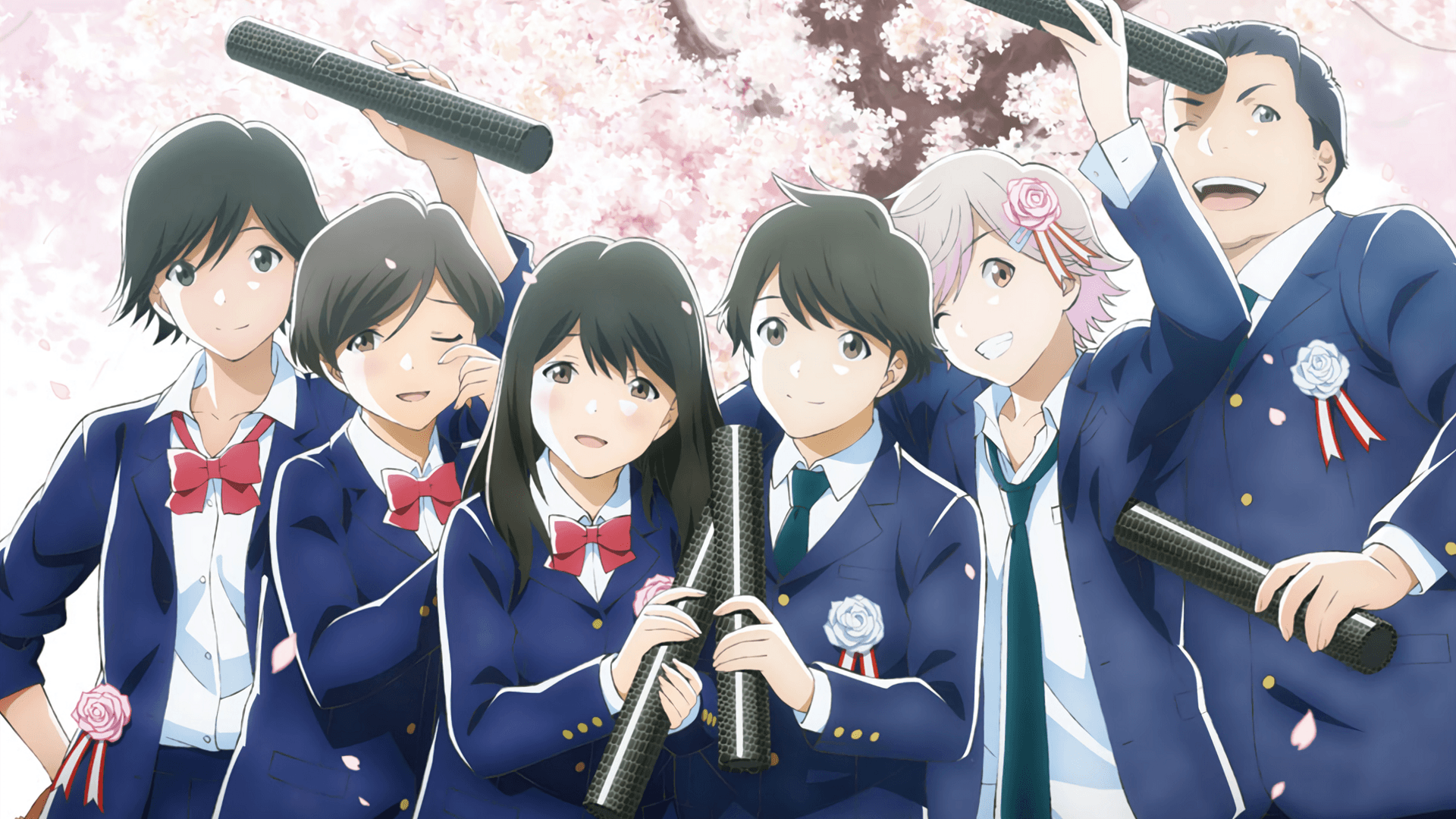An Exceptional Anime That Shines in Originality and Narrative
Tsuki ga Kirei, the enchanting anime series that concluded in the spring of 2017, stands as a remarkable achievement that effortlessly accomplishes its intended goals. While one could nit-pick minor flaws, such as occasional animation inconsistencies or closure for certain side characters, these criticisms pale in comparison to the overarching success of the series. Tsuki ga Kirei exemplifies what original anime can achieve when placed in the hands of capable creators who possess a clear narrative vision. With its simplicity and profound exploration of first love, this series sets a standard that should be regarded as the definitive guide for crafting romance anime.
The Power of Natural Flow and Simplicity
One of the key strengths of Tsuki ga Kirei lies in its ability to maintain a natural flow and spare elegance throughout its narrative. The series avoids unnecessary complications, allowing the core emotions associated with first love to take center stage. Kishi Seiji and Kakihara Yuuko have expertly crafted a storyline that remains laser-focused on what truly matters. By embracing the complexity and conflicting emotions that come with first love, Tsuki ga Kirei achieves a profound depth without the need for superfluous embellishment. It serves as a valuable reference for anyone seeking to create a compelling romance anime.
A Heartfelt Exploration of Emotional Tug-of-War
As the series reaches its final moments, Akane and Kotarou find themselves facing a critical decision. The impending physical distance between them becomes a source of emotional distance, causing a strain on their relationship. Akane’s sister, mindful of the challenges posed by long-distance relationships, advises her to break up with Kotarou. Although her bluntness may come across as harsh, she only wishes to protect her sister from potential heartbreak. Ultimately, the dilemma reveals that the feelings of someone in love are best understood by themselves and the person they love. Love, against all odds, occasionally prevails.
Chinatsu’s last-minute confession to Kotarou further adds to the emotional complexity of the story. In her belief that Akane and Kotarou’s relationship is doomed, Chinatsu seizes an opportunity driven by her own self-interest. While her actions may lack nobility, they are certainly understandable given the circumstances. Tsuki ga Kirei masterfully showcases the intricacies and fallibility of teenage emotions, examining the struggle between selfish desires and genuine friendship.
The Crux of Decision and the Power of Endings
Tsuki ga Kirei confronts a pivotal question as it nears its conclusion: what kind of ending does it seek to portray? The most believable and thematically consistent ending would be a bittersweet parting, emphasizing the challenges they face. An ending where Akane leaves behind her potato as a symbolic gesture, too painful to even see Kotarou one last time. An ending where their communication relies solely on comments about Kotarou’s novel, which serves as a love letter. This ending, which leaves their future uncertain, aligns with the series’ realistic and organic narrative flow. However, the creators choose a different path, presenting an ending that endorses the idea that true love can conquer even against impossible odds. This is the ending that resonates with our desire to believe in the possibility of overcoming obstacles for love’s sake.
The pivotal moment arrives when Daisuke-san, a figure of guidance for both Akane and Kotarou, encourages Kotarou to continue writing as a means of coping and to share his stories with the world through the internet. Writing defines Kotarou’s identity, allowing him to process his emotions. “13.70” becomes a vessel for self-expression, enabling him to understand himself better and embark on the journey that every aspiring writer must face: vulnerability and subjecting one’s work to the scrutiny of the world. Yet, this act of expression carries a significance that may only be fully realized over time.
An Emotional Distance Foreshadowing the Future
The scene between Akane and Kotarou, which appears to be their final encounter, epitomizes the emotional distance resulting from the impending physical separation. Kotarou’s failure to inform Akane about Chinatsu’s confession is not the core issue, nor is his insistence on bearing the burden of their train fare expenses. The crux of the problem lies in Akane’s reluctance to become a burden to Kotarou, fearing that she may hinder his chances of experiencing a normal and happy high school life. The inability to perceive each other’s emotions clearly further exacerbates the situation.
An Unabashed Triumph: The Legacy of Tsuki ga Kirei
The Unparalleled Excellence of a Romance Anime Masterpiece
In my view, Tsuki ga Kirei stands as an unabashed triumph—an extraordinary addition to the canon of romance anime.

